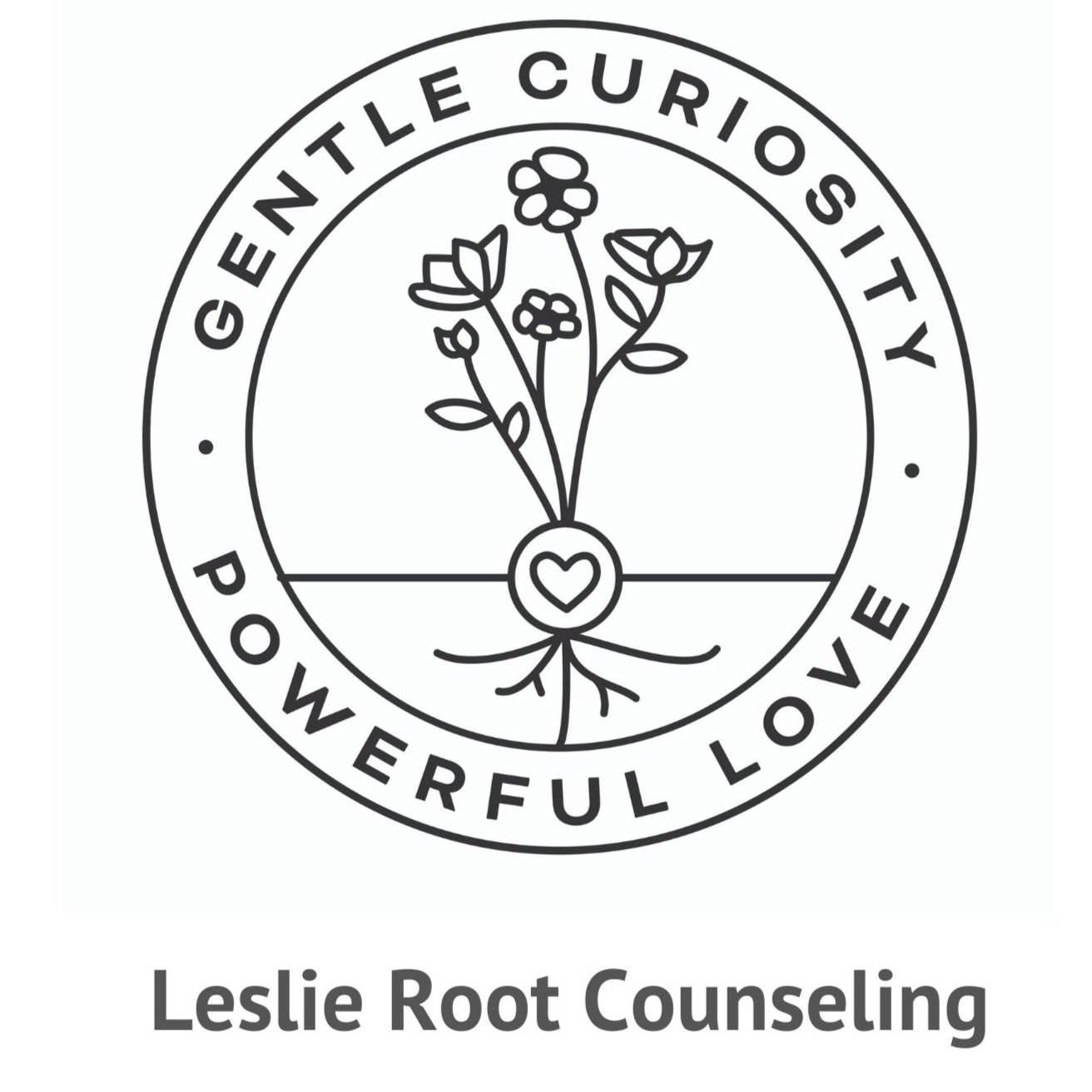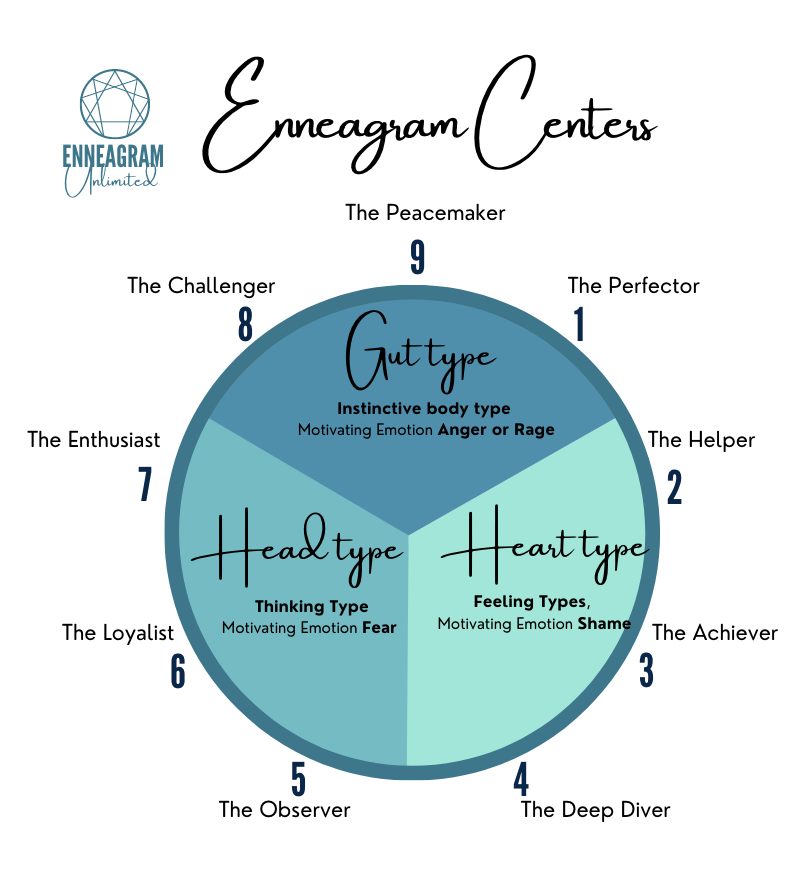Discover Your Enneagram Type: Through the Intelligence Triad
You have heard about the enneagram and now you are wondering what type you might be. You may even feel like you meet criteria for several Enneagram Types. If you are still torn between a few types, discovering your center of intelligence can help you identify where you operate from and how you react to stimulus.
The Enneagram System honors that we have three brains, or Enneagram Centers of Intelligence: head (or thinking center), heart (or feeling center), and body (the center of sensing). Depending on our Enneagram type, one of these is your lead intelligence. When our life energy flows unobstructed through all three Centers (head, heart and belly) our core emotions may arise as natural responses, but they do not drive our behavior or our type.
Each center deals with a different emotion, and each number within that center expresses that emotion through a unique lens. The gut types, 8, 9 and 1, are part of the instinctive body center of intelligence. They process incoming information and stimuli through their instincts (with their gut) and they respond to life from an instinctual place (versus a feeling or thinking space). Gut types tend to read the energy of others (what energy they pay attention to is different for each type). They experience life viscerally and prioritize autonomy. Each of these types deal with anger as their body/belly centered issue. Enneagram 8s Display their anger, Enneagram 9s deny their anger, Enneagram 1s repress their anger.
The heart types 2, 3, and 4 and part of the Feeling Center. These types take life in through the heart chakra or mediastinum. Feelings for this group are intuitively felt, what each type does with the data is particularly different. When the energy of love and truth is not free flowing for this group feelings of shame and unworthiness can trigger a faux response that masks personal value based on appearing loving, precious and/or unique. These types drive to make deep connections which leads to preoccupation with comparison. Each of these types all deal with shame as their heart center issue. Enneagram 2s focus their feelings outward (in hopes of not feeling shame), Enneagram 3s deny their feelings (in hopes of resisting shame). Enneagram 4s focus their feelings inward (in hopes of avoiding deeper shame)
The Head Center types 5, 6, and 7, known as the “thinking” center, tend towards intellectual, speculative, mental sorting of information. These types take information in by processing things cerebrally. They lean towards analysis and forecasting which can lead to overthinking and mental paralysis. As a result this triad struggles with the experience of anxiety/ distress and the emotion of fear. Enneagram 5s experience fear of the external world and it’s possible expectations of them and try to wall themselves off. Enneagram 6s experience fear and anxiety internally and plan for worse-case-scenarios. Enneagram 7s try to deny their fear and anxiety by keeping in constant motion, physically and intellectually.

